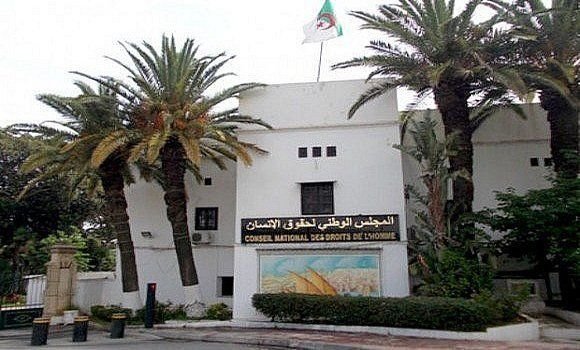Today, Tuesday, the National Council for Human Rights denounced the European Parliament’s regulation on freedom of expression in Algeria, considering it a “blatant interference” in Algeria’s sovereign affairs.
In a statement, the Council affirmed that “in light of the positive development of freedom of expression in Algeria, the regulation, which was severely criticized by more than one party in Algeria and abroad, constitutes blatant interference in the sovereign affairs of the Algerian state, specifically in the affairs of the judiciary,” adding that this “appears first through The list mentions individual cases related to the conditions of persons imprisoned awaiting trial, which results in the list taking the form of a pressure card on the judge.
He added that the process of pressure also appears through “the formula of the threatening and pressing regulations ordering the release of these prisoners while directing the letter to the Algerian authorities in general, which means that it puts the decision to release the prisoners in the hands of authorities other than the judicial authority or pushes for the intervention of these authorities and influence the judge.”
In this regard, the Council considered that the regulation constitutes a “serious violation of the independence of the judge, which is guaranteed and protected by express provisions in the constitution and in the law.” It also represents “a flagrant infringement of a basic human right that is enshrined in the principle of judge independence, which is the principle declared in the constitution and enshrined in the text.” Legislative law related to the election of judges of the Supreme Judicial Council.
The Council stated that “it was more appropriate for the European Parliament to choose to express its opinion in the face of a partner of the European Union, the agreed approach as an organized framework for dialogue, consultation and expression of opinion, which is represented by official channels such as the Partnership Council or the Joint Parliamentary Committee or even a hearing session, as was done within a month.” March, where, upon the invitation extended by the Subcommittee on Human Rights of the European Parliament to the President of the Council, the latter attended and discussed with the members of this body the human rights situation in Algeria.
On the other hand, he stressed that Algeria “is working to pass its diplomatic messages through its desperate struggle to defend the rights of the weak of this world through channels of dialogue and discussion in organized frameworks and official bodies such as the United Nations Human Rights Council.”
In response to the defamations included in the regulation, the National Council for Human Rights affirmed that it “is following very carefully the development witnessed by freedom of the press through the growth of media spaces with its various platforms and the various forms of support provided by the state and its various institutions to accompany media institutions.”
The Council also reminded the President of the Republic of the “keenness of the President of the Republic to strengthen the guarantees of freedom of expression,” as well as his “encouraging position for freedom of the press on its International Day, when he personally supervised a reception for representatives of various media outlets, listening to all opinions in their diversity and sometimes conflicting ones, and directing everyone to engage in the legal system that guarantees protection The journalist and the media.
#National #Council #Human #Rights #denounces #European #Parliaments #regulation #Algerian #Dialogue
#oussama_boulegheb #elhiwardz #alakhibariat.xyz #elhiwar #elhiwar-en



